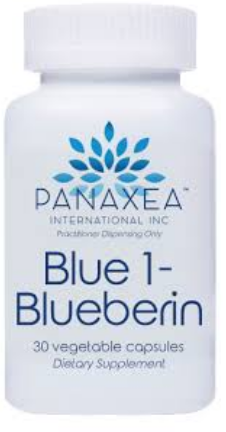Anti-diabetic effects: Reduces fasting plasma glucose, reduces the levels of plasma enzyme ALT, AST and GGT, increases glucose transport, and confers protection against glucose toxicity
Antioxidant effects: Decreases serum cholesterol and phospholipids levels
Anti-inflammatory effects: Reduces serum CRP(C-reactive protein)
Metabolic syndrome is a cluster of metabolic disorders that is associated with an increased risk of cardiovascular events (Daskalopoulou et al., 2006). Type 2 diabetes, hypertension and dyslipidemia are among the metabolic disorders included in the syndrome. In 2007, 76 million Americans were diagnosed with metabolic syndrome (American Heart Association, 2009). Because metabolic syndrome is tightly correlated with obesity, this number is more likely to increase due to the growing number of obese persons that is escalating to epidemic levels, which the Western society faces today.
Among twenty-four fruits investigated, blueberries were found to have the highest total antioxidant capacity (TAC) in an oxygen radical absorbance capacity assay (13427 TAC/serving; Wu et al., 2004). In a cell-based assay, wild blueberries also showed the highest cellular antioxidant activity (Wolfe et al., 2008). In view of their strong antioxidant activity and in relation to recent reports that antioxidant-rich foods reduce the risk of metabolic syndrome, various studies on blueberries that could have applications for the treatment of the disorders encompassing metabolic syndrome.
* *These statements have not been evaluated by the Food and Drug Administration. This product is not intended to diagnose, treat, cure, or prevent any disease.

